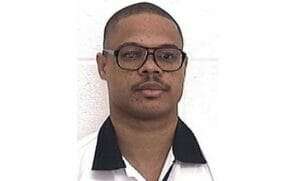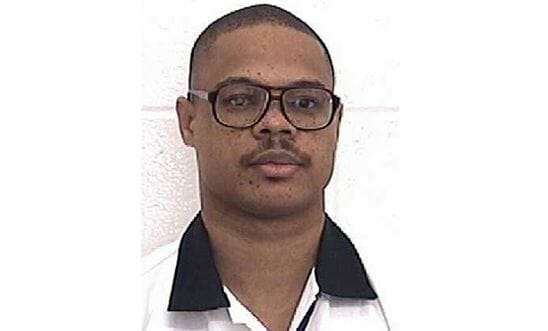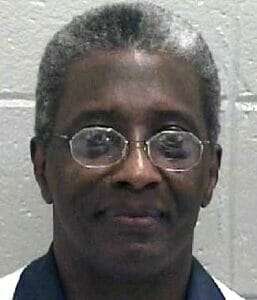
Kenneth Fults was executed by the State of Georgia for the murder of his neighbor during a robbery. According to court documents Kenneth Fults would break into his neighbors home and during the process would shoot and kill nineteen year old Cathy Bounds after smothering the woman with a pillow. Kenneth Fults would steal the victims car and fled the scene. Kenneth Fults would be arrested, convicted and sentenced to death. Kenneth Fults would be executed by lethal injection on April 12, 2016
Kenneth Fults More News
A Georgia inmate convicted of the fatal shooting of a woman during a 1996 crime spree had his request for a stay of execution rejected by the U.S. Supreme Court on Tuesday, hours before he received a lethal injection.
Attorneys for inmate Kenneth Fults had asked the nation’s highest court to consider arguments that a juror who imposed the sentence was motivated by racial bias. The request presented to Justice Clarence Thomas on behalf of the court had been denied, the court said in a statement Tuesday afternoon. It gave no explanation for the decision.
Fults was executed at 7:37 p.m. Tuesday at the state prison in Jackson, according to the Georgia Department of Corrections.
In a statement the department said Fults “accepted a final prayer and declined to make a final statement.”
The 47-year-old inmate had pleaded guilty to killing a neighbor, 19-year-old Cathy Bounds, during a burglary in January 1996, and a jury sentenced him to death
On Tuesday, Fults had visits with 17 relatives, a friend and an attorney and two paralegals, officials said.
On Monday, the State Board of Pardons and Paroles declined to grant clemency for Fults. The parole board is the only entity in Georgia that can commute a death sentence.
Prosecutors have said Fults killed Bounds during a weeklong crime spree that began when he stole two guns during burglaries. After trying unsuccessfully to kill his former girlfriend’s new boyfriend with one of the stolen guns, Fults broke into the trailer next to his, where Bounds lived with her boyfriend.
Bounds, who was home alone, pleaded for her life and offered him the rings on her fingers, but Fults forced her into the bedroom, wrapped electrical tape around her head, put her face-down on the bed, put a pillow over her head and shot her five times in the back of the head, prosecutors said.
Fults’ lawyers said in a clemency petition that their client had an extremely tough childhood characterized by abuse and neglect and an intellectual disability that keeps him from behaving appropriately
“Mr. Fults, the man, committed a terrible, tragic act when he killed Cathy Bounds,” they wrote. “But before the man existed, there was an innocent, vulnerable child in his place. And that child, Kenny, fell through the cracks.”
They also pointed out what they said were flaws in his sentencing trial, including a juror they said was motivated by racial bias and a defense attorney who fell asleep and failed to provide jurors with adequate information.
In their filing with the Supreme Court, Fults’ lawyers argued his death sentence is unconstitutional because one of the jurors who imposed it was motivated by racial prejudice.
During jury selection for Fults’ trial in 1997, juror Thomas Buffington, who was white, told the judge and lawyers on both sides that he felt no racial prejudice.
An investigator working with Fults’ lawyers eight years later spoke to Buffington about his jury service. Buffington, who was 79 at the time of the interview and has since died, twice used a racial slur when talking about Kenneth Fults, who is black.
Once he pled guilty, I knew I would vote for the death penalty because that’s what that (N-word) deserved,” Buffington said, according to the signed, April 12, 2005, affidavit in the court record.
State and federal courts have consistently declined to consider Fults’ argument that his sentence was unfairly imposed because of racial bias, mostly for procedural reasons that have to do with when the argument was first raised. The U.S. Supreme court in October declined to take up the issue on appeal.
As the scheduled execution loomed, Fults’ lawyers asked the high court to take the case directly, not as an appeal. They argued it was very similar to another case the court agreed last week to hear.
The state argued in a court filing Monday that this case did not demonstrate the “exceptional circumstances” necessary for the Supreme Court to take it on directly.
Fults was the fourth man executed in Georgia this year. Another man, Daniel Lucas, is scheduled to die April 27.
https://www.news4jax.com/news/2016/04/13/georgia-executes-man-who-killed-teen-neighbor-in-1996/







